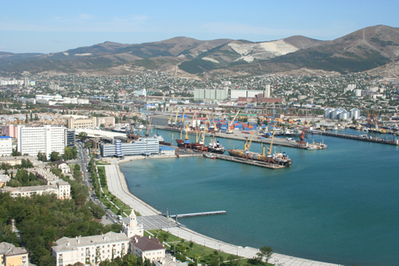Russia's Grip on Biggest Port Operator Tightens
The changes follow the arrest last month on organized crime and embezzlement charges of Ziyavudin Magomedov, head of the Summa conglomerate which with a joint venture partner owns a 50.1 percent stake in the port operator. He denies the charges.
Several senior Russian business executives have said the prosecution would allow the state to extend its control over the Russian economy, after bringing most of the oil sector back into state hands since Vladimir Putin became president 18 years ago.
Novorossiysk Commercial Sea Port (NCSP), controls Russia's Novorossiysk port on the Black Sea, and the Primorsk port on the Baltic. Both are major terminals for exports of oil and oil products to world markets.
The new chairman of the NCSP board is Dmitry Pristanskov, head of the federal property agency who succeeds Rashid Sharipov from state-owned pipeline monopoly Transneft.
Summa representatives previously had two seats on NCSP's board, but after Friday's changes, Russian state pipeline monopoly Transneft has four out of seven board positions.
Summa and Transneft jointly control Novoport Holding company, which owns 50.1 percent of NCSP. Transneft also has 10.5 percent in NCSP, while the Russian state property fund controls 20 percent.
Transneft has for some time been seeking to acquire Summa's stake in NCSP and gain control of the port. Although Russia's state anti-trust regulator approved Transneft's bid in February, talks on the deal have been suspended.
Pyotr Aven, president of Alfa Bank, Russia's largest private lender, in comments about Magomedov's arrest and growing government control over the economy, said earlier this month that the growing state has been stifling competition.

















